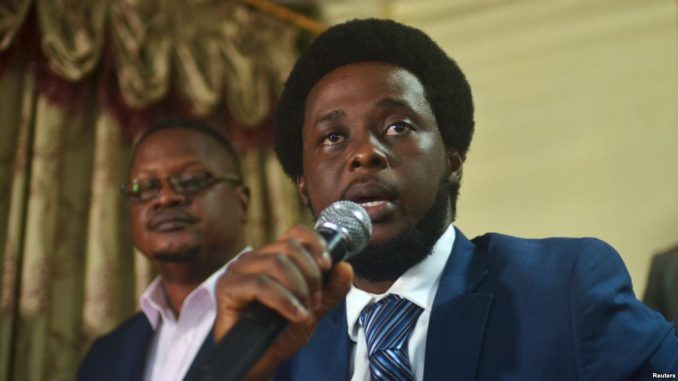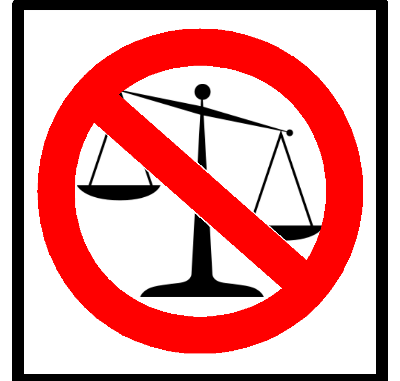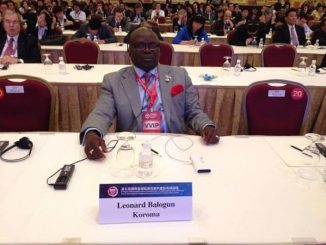
A REPLY TO FRANCIS BEN KAIFALA’S ARGUMENTS/RHETORICAL QUESTIONS ON THE CONSTITUTIONALITY OR OTHERWISE OF COMMON PARAGRAPH 6(1) OF CONSTITUTIONAL INSTRUMENTS NOS. 64, 65 AND 67 OF 2018.🔴🔴
I stumbled on FBK’s arguments or rather rhetorical questions on the Commissions of Inquiry (COIs) this morning. I have read, with keen interest, his rhetorical questions which lean in favour of the commencement the COIs with undue disregard for the case RIGHTLY filed by Bar in the Supreme Court, challenging their legality. My interest in his rhetorical questions stems from the facts that: first, he is a brilliant colleague; and second, he has held himself out as a respecter of the Constitution and the rule of law. However, his arguments or rhetorical questions, with respect, fall way below what I expect of him. His rhetorical questions are, with respect, a failed attempt to complicate a very straightforward issue.
Now to the issue at hand. Section 150 of the Constitution confers rule-making powers on the Rules of Court Committee (ROCC) to make rules governing the practice and procedure of ALL Commissions of Inquiry in Sierra Leone, without any exception. The referred section provides thus:
*_”[S]ubject to the provision of this chapter, the Rules of Court Committee shall…make rules regulating the practice and procedure of all Commissions of Inquiry.”_*
What common paragraphs 6(1) of Constitutional Instruments Nos. 64, 65 and 67 do is to formulate rules governing the practice and procedure of COIs they establish without reference to section 150 of the constitution. Common paragraphs 6(1) of the said Constitutional Instruments provide that:
”The proceedings of the Commission shall be regulated by the practice and procedure in force in the High Court with such modification, adaptation and exception as are necessary to enable the Commission to elicit all such information as may be necessary for the performance of the functions of the Commission.”
This provision, without more, is a flagrant usurpation of the powers conferred on the ROCC and a blatant violation of the Constitution, to put it mildly.
Common paragraphs 6(1) of the referred Constitutional Instruments further beg the following questions: what rules of the High Court are applicable to the COIs? Is it the High Court Rules 2007 or the Criminal Procedure Act 1965 or both? Who is legally empowered to make adaptation, modification and exception to the rules of procedure that apply? The Commissioners of the COIs? Where do they derive the power to so act, keeping in mind section 150 of the Constitution? What happens if the making of such adaptation, modification and exception to the rules of procedure in force in the High Court cause injustice to persons who appear before the COIs? Do you sacrifice the right of such persons to fair hearing in order to fulfill the only criterion set out in common paragraphs 6(1) of the said Constitutional Instruments, which is ‘to enable the Commission to elicit all such information as may be necessary to carry out the functions of the Commission’? These are the many unanswered questions and uncertainties that common paragraphs 6(1) provoke. This is also why, among other reasons, compliance with section 150 of the Constitution is a necessary legal prerequisite for the commencement of the COIs. Hearings of the COIs cannot be fairly conducted in the absence of clearly defined rules of procedure.
FBK’s reference to COIs established before the 1991 constitution came into force in a bid to justify the current constitutional conundrum is the most untenable argument I have read in a long time. The 1991 Constitution was not in existence then. Therefore, there was not and could not have been an issue non-compliance with a Constitution that was non-existent. Plain and simple.
Even if Commissions of Inquiry were established after the 1991 Constitution came into force without reference to section 150 of same, the fact that this illegality was not challenged then is not a bar to current and future challenges to such violations.
Citing Cap 54 to reinforce his argument is another unsuccessful attempt to defend the indefensible. Provisions of cap 54 that contravene the Constitution are void and of no effect. Hence, reliance cannot be successfully placed on section 9 of Cap 54 to seriously argue that it gives rule-making powers to Commissioners of the COIs. This section is inconsistent with section 150 which, to the exclusion of all other persons or authority (including Commissioners of the COIs), clothes the ROCC with the power to make rules governing the practice and procedure of ALL COIs. In effect, this inconsistency makes section 9 of Cap 54 void and of no effect by virtue of section 171(15) of the Constitution. For the purpose of clarity section 171(15) of the Constitution provides as follows:
[T]his Constitution shall be the supreme law of Sierra Leone and any other law found to be inconsistent with any provision of this Constitution shall, to the extent of the consistency, be void and of no effect’.
Based on the foregoing, the COIs cannot and should not commence proceedings before rules governing their practice and procedure are formulated by the ROCC. To do otherwise, would breed uncertainty as to what rules are applicable in proceedings of the COIs. This uncertainty will give an unlimited scope and latitude to the Commissioners to make rules governing the practice and procedure of the COIs during the course of proceedings. Going by common paragraphs 6(1) of the Constitutional Instruments, this means that Commissioners of the COIs can make, alter and/or modify rules governing the practice and procedure of COIs as and when they deem necessary and even *‘in the middle of the game’.* This may occasion grave injustice to persons who appear before the COIs. And I need not reiterate the obvious point that rule-making falls out of the remit of the powers of Commissioners of the COIs – see section 150 of the 1991 Constitution above.
The effects of the COIs commencing proceedings without clearly defined rules of procedure are in many folds. Chief among them is that it would not guarantee persons who appear before the COIs the right to FAIR HEARING and PROTECTION OF LAW, which should form a cornerstone in proceedings conducted by courts or tribunals, inclusive of the COIs.
The need for the government to comply with section 150 of the Constitution before COIs commence proceedings cannot be over-stated. Compliance with the referred section 150 is not an option that the government can choose to ignore or circumvent with the use of abstract legal theories. FBK’s arguments cannot find support in both law and fact. Therefore, it would be wise for my learned friend to urge our Learned Attorney General to advise the GoSL to do the needful.
© I. I. Mansaray.



